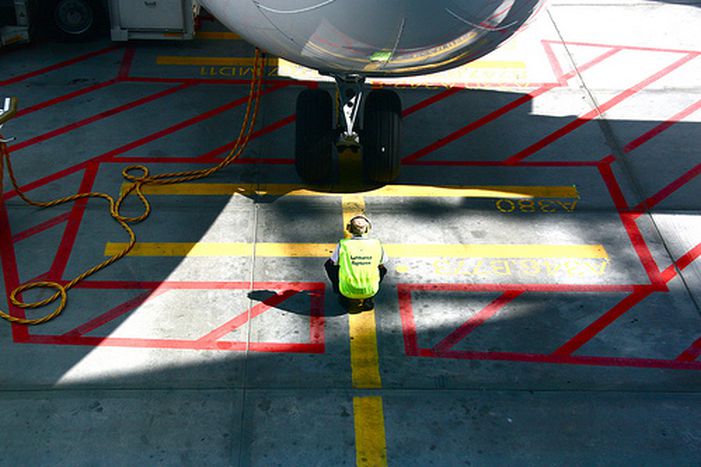
Frankfurt - Beijing: getting German Olympic rowers to China
Published on
Translation by:
Nabeelah ShabbirOrganising the transport of boats and beer from Germany to far-off China could be considered an Olympic challenge in itself
Once the German rowers get ready to compete in the first Olympic regatta on 9 August, they will have crossed 8, 000 kilometres to have reached China. The same thing will have gone for the horses, jockey sticks and other equipment needed to actually compete in the Olympic disciplines this summer.
German-China connection
 The Olympics are a nightmare in terms of logistics. In central Europe for example, an enormous air cargo warehouse was opened on the outskirts of Frankfurt in Germany. From 7 July, no more and no less than almost one hundred tons of material have been sent from Frankfurt airport, including cabinets weighing five hundred kilos, shirts, bottles of mineral water, massage beds for the athletes, office material and six tons of brochures on the German team. Not forgetting special crates of national beer; after all, 90% of the team have chartered flights from Frankfurt to Beijing.
The Olympics are a nightmare in terms of logistics. In central Europe for example, an enormous air cargo warehouse was opened on the outskirts of Frankfurt in Germany. From 7 July, no more and no less than almost one hundred tons of material have been sent from Frankfurt airport, including cabinets weighing five hundred kilos, shirts, bottles of mineral water, massage beds for the athletes, office material and six tons of brochures on the German team. Not forgetting special crates of national beer; after all, 90% of the team have chartered flights from Frankfurt to Beijing.
Boats are sent from all over Germany to Frankfurt in truck-towed trailers
What is the concrete solution in terms of transporting goods? The specific boats which are used in the four-rower disciplines for example can be between ten and twenty metres long. Special aeroplanes are needed for these extraordinary technical requirements. First, the boats are sent from all over Germany to Frankfurt in truck-towed trailers. A Boeing 747 awaits in Luxembourg, becoming an indoor storehouse for the boats. This is made possible since the cockpit can be folded up, allowing the cargo to enter directly from the part in front of the plane, which runs down its nose.
Rowboats head to China on Boeing 747s
We’ll only know in retrospective how much the Olympics organisation by the German Olympics committee (DOSB in German) and its sponsors will amount to. Achim Bueble, head of logistics at DOSB, guesses it could be as much as 30, 000 euros. He declines to speculate whether that means a half or a third of the entire costs. Sea transport is cheaper but it would take six weeks to get to the final destination. Nevertheless, the biggest expenses come from the service sector, such as the work done by the carrier. Achim Bueble won’t reveal any details on the latter either.
Boats, bureaucracy

Once the boats get to Beijing, they need to overcome the next hurdle: Chinese bureaucracy. The sports director, who officially accompanies the fleets, has to transport the boats to the Olympic channel as fast as possible. As Dan Danzglock, board member for the German rowing federation says: ‘In reality we wanted to take care of the organisation. But once we got to Beijing, the Chinese take over the logistics and we just become accessories in the trip.’ Once back in the Olympics headquarters though, the bosses are able to do their job again: checking the oars and oarlocks, making sure that all is in working order, and so on.
German team’s eighteen-hour days
At this point, you would presume the logistics achievement of bringing the entire German team to China is over. In the Olympic village, they rent a subterranean parking spot, like two warehouse containers. This is where the personal equipment of the almost four hundred and fifty sports stars and three hundred assistants will be kept. The physical work will be started with the airfleet by Achim Beuble, logistics head. With enthusiasm he finishes off: ‘When the lorry gets into the Olympic village with the equipment, we all help unload the goods – both atheletes and assistants!’ This sports spirit makes up for days which can be sixteen to eighteen hours long, a lack of sleep and an excess of adrenaline which has been storing up for three months.
Translated from Logistik als olympische Disziplin



